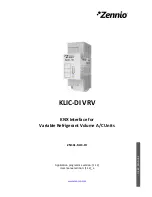
2
�� p�� ��� �� 2017 be�� � s�b���
2017. szeptember 7. 14:22:21
��
p��
��� �� 2017 be��
� s�b���
2017. szeptember 7. 14:22:21
3
�� p�� ��� �� 2017 be�� � s�b���
2017. szeptember 7. 14:22:21
��
p��
��� �� 2017 be��
� s�b���
2017. szeptember 7. 14:22:21
29
EN
9.2.
Discharging of water from the container
ATTENTION!
When discharging water, hot water may leave the appliance.
After disconnecting the container, the discharging of water can be performed via
the outlet by turning the blowoff knob of the combined safety valve in the di
-
rection indicated by the arrow. Before discharging water, close the closing valve
of the water network, and the cold water tap, but leave the hot water tap open
-
throughout the time of discharging .
9.3.
Descaling
Depending on the quality of water, scale may deposit on the radiator and the
tank. Scale depositing on the radiator increases energy consumption and the
risk of radiator failure, whereby descaling should be performed every two years.
Since intensive scaling may cause damage to the heater, check the radiator for in
-
tegrity too. Descaling requires the emptying of the tank, the disconnection of the
electrical circuit and the removal of the service cover.
After removing the service cover, it is recom
-
mended to perform reassembling using a new
sealing. When cleaning, avoid damaging the pro
-
tective surface finish.Perform mechanical clean
-
ing only; no other cleaning or disinfection is
needed. Descaling is considered to be part of the
maintenance, and it does not belong to the ac-
tivities covered by guarantee. However, due to
the necessity of disconnecting the circuit, putting
back into operation must be performed by an
authorised service station (along with the review
of the electrical connections).
9.4.
Regulator, limiter
The replacement requires the disconnection of the power supply; such replace
ment requires the disconnection of the electrical circuit. The regulator and the
limiter form a single unit .
9.5.
Heating element
Its replacement requires the disconnection of the power supply; such replace
-
ment requires the disconnection of the electrical circuit.The replacement of the
ceramic heating element (radiator with pocket tube) requires the discharge of wa
-
ter from the container and the removal of the service cover. For this design, the
radiator is inserted in an enamelled steel pocket tube protected from outside im
-
pacts, whereby the heating element has not direct contact with water. Due to this
design, failure due to scaling rarely occurs, the anode has a longer expected ser
-
vice life than in conventional pipe radiator designs. We absolutely recommend
this design for regions where water is hard .
Summary of Contents for Z30 SMART
Page 65: ...3 65 RU 1 8...
Page 66: ...2 66 Z30 SMART Z50 SMART Z80 SMART Z120 SMART Z150 SMART Z200 SMART 50 C 0 6 80 C 0 6 0 6 0 C...
Page 67: ...3 67 RU III 3...
Page 69: ...3 69 RU 2 PN10 0 65 0 05 100 C Rp1 2 3 201 2001 X 25 8 3 4 4 5 6 7 IEC 60364 MSZ HD 60364...
Page 71: ...3 71 RU 5 3 115 5 1 0 6 80 C 1252122513 1252122514 5 2 Rp1 2 G1 2 0 01 0 02 0 65 0 05 3 115...
Page 76: ...2 76 Z30 SMART Z50 SMART Z80 SMART Z120 SMART Z150 SMART Z200 SMART 60 75 C 9 T 9 1...
Page 77: ...3 77 RU 9 2 9 3 2 9 4 9 5...
Page 79: ...3 79 RU 9 9 10...
Page 117: ...3 117 4 BRA Figure 4 Abbildung 4 Figure no 4 P 4 Obr zek 4 Fig 4...
Page 118: ...2 118 Z30 SMART Z50 SMART Z80 SMART Z120 SMART Z150 SMART Z200 SMART...
Page 119: ...3 119 JEGYZETEK NOTES AUFZEICHNUNGEN NOTES POZN MKY NOTE...
















































